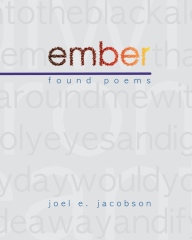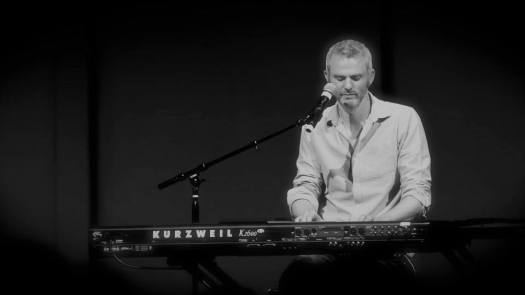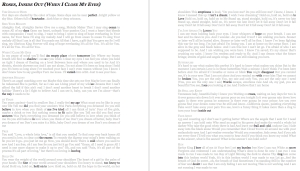
For those not familiar with the idea of found poetry, the idea is to select words from another poem, story, article, song (the list is endless really) to create your own original work. Here is an example from a workshop I took earlier this summer. I had a pretty good response from that found poem, so I decided to embark on a bigger project.
My dear friend Jason Stocker recently released his second CD, The Color of Hope, produced by Ben Wysocki of The Fray. The CD covers Stocker’s journey of losing his father at a young age, the subsequent grief, the testing and maturation of his faith, and of course falling in love. I first met Stocker in August of 2000. He was the new youth worship intern at the church where I was on (unpaid) staff as director of youth discipleship. We took a staff retreat to the mountains in early August, and of course, the two tallest guys on staff were assigned roommates. What was unique about getting to know Stocker was that he had lost his dad about 15 months prior to that retreat. I would lose my own father two months after that retreat. I remember asking Stocker if he’d be willing to work through this whole losing-your-dad thing with me. He didn’t know me, but he promised to be there for whatever needed, to ask whatever I needed to ask.
So many of the stories on The Color of Hope parallel my own journey of losing my
dad, wrestling with my faith and with God, trying to figure out marriage without the help of a father, and more. Jason Stocker is one of three men who have stood beside and encouraged me through the grieving process. It goes as no surprise then that listening to this CD takes me on quite a journey. So I decided to write poems that explained my own journey, but because our stories are so closely interwoven, I decided to use Stocker’s lyrics as the basis for my poems. Thus, the found poems. (Yes, Stocker has given me permission to use his lyrics. This is all legit, folks.)
To compose each poem, I spent time listening to each track of the CD on repeat. I took the lyrics from all the songs and put them in one document. I then chose words (in the order that they appeared) that recorded my own experience, and it turns out that the poem matches the tone of that song. I then moved on to the second track, set it on repeat, and found a new poem. The result is a juxtaposition of two similar journeys, unique in their own ways. The book is in two parts. The first part shows Stocker’s lyrics in gray, and my chosen words in black. This way you can see the subtext of the two works. The second section is just the poems, as it’s easier to read that way. Here is an example of how it’s laid out in the book. This poem is called “Roses, Inside Out”, which accompanies the track “When I Close My Eyes“:
And then here is the text of the poem by itself (with line endings and punctuation):
ROSES, INSIDE OUT
Perfect heartache:
ocean days
an empty place
tomorrow shadows,
vanishes the way
my age did.
Believe me,
I’ve tried to fit
answers in the excess cold
leaving fate too heavy
to hold on to. Emptiness
isn’t a dream to love.Losing hope,
you disappear
with broken words.
I see roses
inside out,
frail, and old.I bow,
my burden
snowing
into doubt.
In a way, this project is a collaboration. I am extremely thankful for Stocker’s friendship and his willingness to let me use his work as an inspiration to my own. I hope I’ve done it justice.






